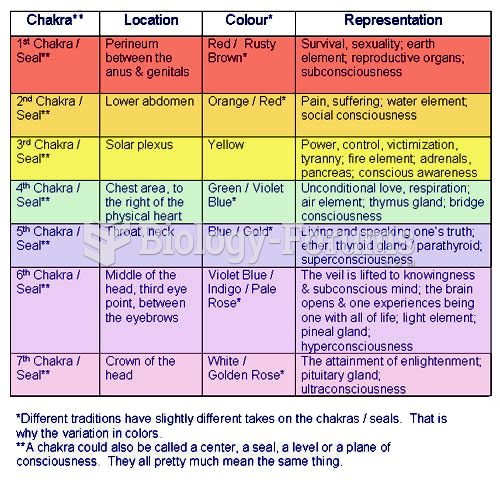|
|
|
Drug-induced pharmacodynamic effects manifested in older adults include drug-induced renal toxicity, which can be a major factor when these adults are experiencing other kidney problems.
The FDA recognizes 118 routes of administration.
Nearly 31 million adults in America have a total cholesterol level that is more than 240 mg per dL.
Stevens-Johnson syndrome and Toxic Epidermal Necrolysis syndrome are life-threatening reactions that can result in death. Complications include permanent blindness, dry-eye syndrome, lung damage, photophobia, asthma, chronic obstructive pulmonary disease, permanent loss of nail beds, scarring of mucous membranes, arthritis, and chronic fatigue syndrome. Many patients' pores scar shut, causing them to retain heat.
About one in five American adults and teenagers have had a genital herpes infection—and most of them don't know it. People with genital herpes have at least twice the risk of becoming infected with HIV if exposed to it than those people who do not have genital herpes.
 Sociologists who use the functionalist perspective stress how industrialization and urbanization ...
Sociologists who use the functionalist perspective stress how industrialization and urbanization ...
 Transitions from One Stage to Another: Some Possible Triggering Situations of Experiences that may ...
Transitions from One Stage to Another: Some Possible Triggering Situations of Experiences that may ...





